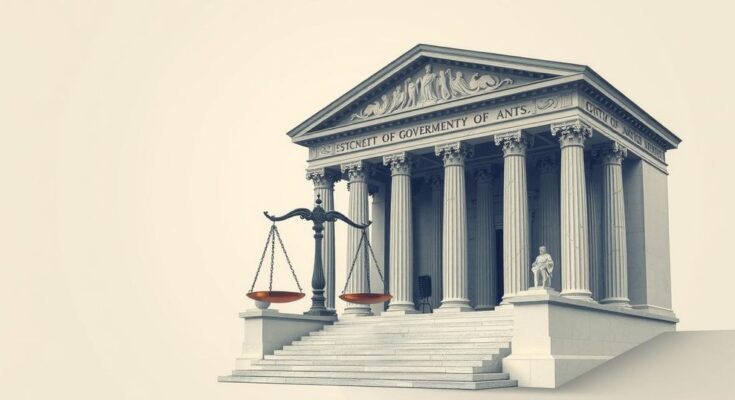The APC and Labour Party debate Nigeria’s placement as the 36th most corrupt nation per Transparency International’s 2024 index, where Nigeria scored 26 points, signaling ongoing corruption issues. Criticism arises over the effectiveness of anti-corruption efforts under the current government, while the APC stands by its reform measures, insisting its initiatives will yield visible improvements.
The All Progressives Congress (APC) and the Labour Party have engaged in a dispute over Nigeria’s ranking as the 36th most corrupt nation globally, according to Transparency International’s 2024 Corruption Perceptions Index. Released on Tuesday, the index assigned Nigeria 26 points, placing it alongside countries such as Uganda, Mexico, and Iraq. Denmark emerged as the least corrupt country with a score of 90, while South Sudan and Somalia were identified as the most corrupt.
Francois Valeria, Chair of Transparency International, emphasized that corruption is a pressing issue worldwide, although improvements are noted in several nations. He warned that corruption significantly undermines climate action efforts, with 148 countries seeing a stagnation or deterioration in corruption levels since 2012.
In response to Nigeria’s ranking, Obiora Ifoh, the National Publicity Secretary of the Labour Party, criticized the APC government for exacerbating corruption. He stated that corruption has reached endemic levels under the current administration, worsening since the days of the People’s Democratic Party (PDP). Ifoh also highlighted the ineffectiveness of anti-corruption agencies, claiming they prioritize internet fraudsters while systemic corruption persists.
Conversely, Nze Chidi Duru, the APC’s Deputy National Organising Secretary, defended the government’s anti-corruption measures, asserting that President Bola Tinubu’s administration has initiated substantial reforms. He mentioned tax reforms and direct funding to local governments as part of efforts to enhance accountability and financial transparency at the grassroots level.
Duru further expressed skepticism regarding Transparency International’s data sources for the ranking, indicating a lack of awareness around their case studies. He emphasized a belief that the government’s commitment to combating corruption will become apparent in the near future, dismissing criticisms as unfounded.
The recent clash between the APC and Labour Party regarding Nigeria’s corruption ranking reflects deep political divisions over the state of governance in the country. While the Labour Party criticizes the current administration for worsening corruption, the APC claims to be implementing effective reforms. The rankings highlight ongoing challenges in addressing corruption and the need for transparent governance, which both parties must confront moving forward.
Original Source: punchng.com




